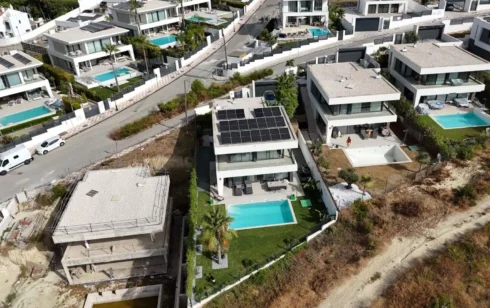SPAIN’S government has asked Morocco for more information about its extensive plans for cloud seeding to create rain.
There are concerns that the initiative- part of Morocco’s national drought plan- might cause bad weather in southern Spain.
Spain believes the project should come under a bilateral agreement between the countries to ensure there are no problems.
READ MORE:
- Autumn arrives early in Spain: Temperatures to plummet by up to 10C today amid storms, rain and hail

Experts believe that making changes to Morocco’s rainfall pattern will trigger thunderstorms, hail and even tornadoes on the other side of the Strait of Gibraltar.
Climate engineering has been condemned by the United Nations in a report published after the 2023 climate summit.
It stated that it ‘can trigger a series of chain reactions with significant risks to humans, oceans, global temperature and biodiversity’.
According to the UN, ‘before continuing with the development of these new technologies, it is necessary to fully understand what their effects and ethical implications are, as well as taking into account the opposing interests of various regions and communities’.
Morocco spent €15 million between 2021 and 2023 on developing an artificial rain programme to boost its very low rainfall levels.
Some scientists believe that cloud seeding can improve rainfall by up to 15%.
It is usually done by small planes that release chemical compounds into the atmosphere, such as silver iodide or sodium chloride, which create clouds.
In February 2023, Agriculture Minister Mohammed Sadiki announced a new investment of €10 million to carry out another 20 cloud seeding projects.
He did not mention specific deadlines or technical details of the implementation of this new phase, but did comment that seeding had achieved considerable success in other countries,
Click here to read more Weather News from The Olive Press.








